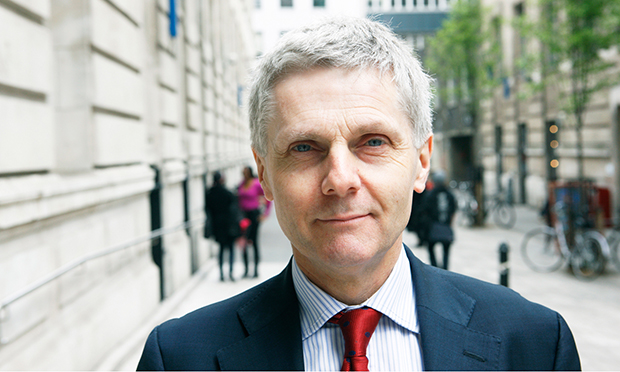‘There is not a person in Britain who is not interested in politics. They just don’t always call it politics’

Devolution boffin: Professor Tony Travers
“There is not a person in Britain who is not interested in politics. They just don’t always call it politics.”
So said politics guru Professor Tony Travers when quizzed by Hackney councillors about how decision-making could be brought closer to the people it affects.
Could the council take over the local NHS? they asked.
As they looked into options for wresting powers from central government down to local, councillors pondered what services were most likely to be successfully devolved.
Grasped
At the meeting of the council’s governance and resources scrutiny commission on Wednesday 15 June, councillors mulled proposals for Hackney and other London boroughs to take on a larger role in running public services.
The capital’s devolution expert highlighted health as one area in which devolution could solve central government’s problem of trying to to provide joined-up services whilst at the same time saving cash.
“Any borough that could convince national government that by they could operate public health and the NHS in an effective way would be making a very attractive case,” averred Professor Travers.
“Any convincing solution would be grasped by both hands.”
Ripe
Together with skills training, criminal justice and aspects of housing, health was something that, in Travers’ view, was ripe for reorganisation: “Local government is better at managing resources, rationalising things and making difficult decisions,” he said.
Under current arrangements authorities are responsible for public health and adult social care, while the centrally-controlled NHS is responsible for other health services.
This leads to coordination problems and inefficiencies.
The government has already committed to devolving health care to local control in Greater Manchester and Cornwall, and London could be next.
Hackney is already part of a government-sponsored pilot scheme, announced in December 2015, to integrate health and social care provision.
The possibility of giving greater powers to London government and to London boroughs has also been floated by London Councils, a body made up of representatives of the capital’s local authorities, and of which Hackney’s mayor Jules Pipe is chair.
In their October 2015 consultation document, The London Proposition, the group sets out a range of ways in which decision-making could be brought closer to the people.
Caution
But Professor Travers cautioned that the Town Hall would have to engage with the public to ensure adequate public buy-in for any proposed plans.
He suggested a ‘Hackney Debate’ to voice the views of local residents about which powers their authority should have.
Asked by the Hackney Citizen as to whether he thought the directly-elected mayoral system led to a concentration of power and a lack of effective formal scrutiny that could be problematic if devolution plans went ahead, Professor Travers replied: ‘The more power is devolved, the more it is necessary to think about holding that office to account … You do have to think about how they are held to account and how a power balance is achieved”.
